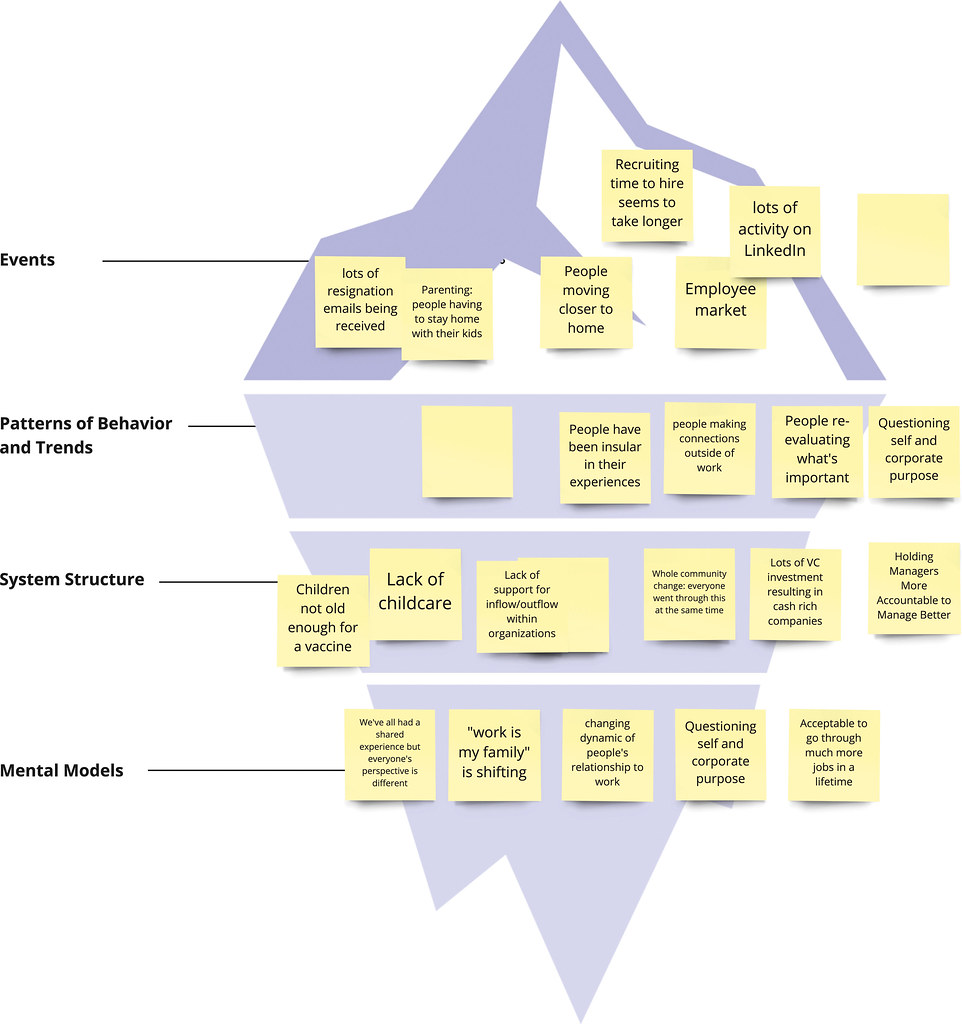Title: Unmasking the True Meaning Behind Obi-Wan Calling Vader “Darth”
Introduction:
In the vast galaxy of “Star Wars,” one enigmatic detail has puzzled fans for decades – Obi-Wan Kenobi’s choice to address the Sith Lord, Darth Vader, simply as “Darth.” It is a subtle exchange that takes place during their intense lightsaber duel in “Star Wars: A New Hope.” At first glance, this peculiar naming convention may seem trivial, but as we dig deeper, we find that there’s more to it than meets the eye.
The search results shed light on this intriguing aspect of the ever-evolving “Star Wars” saga, each offering insights from different perspectives. [1][2][3] While the answers may not align perfectly, they hint at the underlying symbolism and depth buried within this seemingly innocuous choice of words.
Join us as we embark on a journey to uncover the true motives, emotions, and intentions behind Obi-Wan’s decision to address his former apprentice as “Darth,” in what would become a defining moment for both these iconic characters.
In this article, we will explore the concept of the “Hero’s Journey” as a framework to analyze Obi-Wan’s actions and examine the significance of his choice in the context of his own personal growth and the overall narrative. We will delve into the various theories put forth by fans and experts, discussing the subtle nuances of Obi-Wan’s characterization and the possible hidden meanings behind his strategic choice of words.
By closely examining the moments leading up to this encounter, we’ll uncover the significance of Obi-Wan’s connection to the mystical force and how it shapes his interaction with Vader. Furthermore, we’ll explore the dynamics between these two powerful Jedi and Sith, their shared history, and the emotions they carry during their climactic confrontation.
Through the lens of various fan theories, we’ll unveil the possibility of Obi-Wan subtly mocking or taunting Vader, highlighting their complex relationship heavily influenced by their opposing ideologies and the burden of their shared past.
As we weave together the insights gleaned from the provided search results [1][2][3], our aim is to enlighten readers and offer a fresh perspective on this age-old Star Wars mystery. Whether you’re a casual viewer or a die-hard fan, this article promises to deepen your understanding of the significance behind Obi-Wan’s choice to call Vader ”Darth” and what it truly represents within the larger narrative of “Star Wars: A New Hope.”
So buckle up, grab your lightsabers, and join us as we embark on this exploration into the captivating world of ”Star Wars” to unravel the enigma of why Obi-Wan truly calls Vader “Darth” amidst the epic saga of “A New Hope.” May the force be with us as we uncover the truth!
Table of Contents
- The Enigmatic Darth Title: Unraveling the Mystery Behind Obi-Wan’s Address in “Star Wars: A New Hope”
- Exploring Obi-Wan’s Strategic Vocabulary: Decoding the Purpose of Calling Vader “Darth”
- A Symbol of Respect or Hidden Motive? Analyzing the Relationship Dynamics in Obi-Wan’s Choice of Address
- Unveiling the Subtle Clues: Dissecting Obi-Wan’s Intentions for Using “Darth” while Referring to Vader
- Q&A
- Insights and Conclusions

The Enigmatic Darth Title: Unraveling the Mystery Behind Obi-Wan’s Address in “Star Wars: A New Hope”
In the iconic film “Star Wars: A New Hope,” there is an enigmatic title that has stirred curiosity among fans for decades: Darth. Obi-Wan Kenobi, the wise and experienced Jedi Knight, addresses the fearsome Sith Lord as Darth Vader throughout the movie. But why does he use this title instead of Anakin Skywalker’s given name?
To unravel the mystery behind Obi-Wan’s address, we need to delve into the history of the galaxy far, far away. The truth lies hidden in the tragic transformation of Anakin Skywalker into Darth Vader. As revealed in the original script of “A New Hope”[2], Obi-Wan explains to Luke Skywalker that his father, Anakin, was a Jedi Knight and former student of his who turned to the dark side and became Darth Vader, a name he adopted upon his fall. This implies that Obi-Wan uses the title ”Darth” as a way to acknowledge the dark persona that Anakin now embodies.
- Obi-Wan’s knowledge of Anakin’s fall: Obi-Wan witnessed the events that led to Anakin’s transformation into Darth Vader, possibly through a recorded message or other means. He understands that Anakin’s identity has been overtaken by the darkness, and addressing him as Darth Vader recognizes this change.
- Acknowledging the Sith tradition: In the Star Wars universe, the title of Darth is reserved for Sith Lords. By using this title, Obi-Wan acknowledges and respects the ancient tradition of the Sith and the power that Vader now possesses.
- Instilling fear and caution: Obi-Wan knows the threat that Darth Vader poses and the atrocities he has committed. Addressing him as Darth Vader not only reflects his true nature but also serves as a reminder of the danger he represents.
Overall, Obi-Wan’s use of the title “Darth” in his address to Vader in “Star Wars: A New Hope” is a powerful recognition of Anakin Skywalker’s tragic descent into darkness and the dire consequences of his transformation.

Exploring Obi-Wan’s Strategic Vocabulary: Decoding the Purpose of Calling Vader “Darth”
Throughout the Star Wars saga, Obi-Wan Kenobi has a knack for using precise language to achieve specific goals. One such example is when he refers to Darth Vader as “Darth” instead of using his full name. This strategic choice reveals a deeper understanding of the power dynamics at play and sheds light on Obi-Wan’s intentions.
By analyzing Obi-Wan’s use of the title “Darth,” we can decipher its purpose and significance within the Star Wars universe. Here are some key insights:
- 1. Establishing An Air of Authority: Obi-Wan, being a seasoned Jedi and experienced warrior, understands the importance of maintaining authority in his interactions. By omitting Vader’s real name and referring to him solely as “Darth,” Obi-Wan reinforces his position as a Jedi Master and asserts his dominance over Vader. This deliberate choice not only commands respect but also serves as a reminder of their past rivalry and the roles they now play.
- 2. Concealing True Identity: Obi-Wan’s use of the title “Darth” also serves to mask Vader’s former identity as Anakin Skywalker. By distancing himself from Anakin’s past and focusing solely on the persona of “Darth,” Obi-Wan subtly diminishes the emotional connection between them. This tactic not only protects the Jedi Order but also allows Obi-Wan to compartmentalize his feelings, making it easier for him to fulfill his duty as a Jedi.

A Symbol of Respect or Hidden Motive? Analyzing the Relationship Dynamics in Obi-Wan’s Choice of Address
The relationship dynamics between Obi-Wan Kenobi and Darth Vader in the original Star Wars trilogy have sparked much speculation and analysis among fans and critics alike. One intriguing aspect of their interactions is Obi-Wan’s choice to address Vader as “Darth” in A New Hope. This decision has often been discussed in terms of its symbolic meaning and potential hidden motives.
Some argue that Obi-Wan’s use of the title “Darth” is a symbol of respect, acknowledging the power and stature that Vader has achieved as a Sith Lord. By using this title, Obi-Wan may be acknowledging the dark path that Anakin Skywalker (Vader’s former identity) has chosen and the influence of the Dark Side on his actions. It can be seen as a recognition of Vader’s position and a way for Obi-Wan to show that he understands the significance of his transformation.
On the other hand, there are those who speculate that Obi-Wan may have a hidden motive behind his use of the title ”Darth.” They suggest that by addressing Vader as “Darth,” Obi-Wan is purposefully distancing himself emotionally from his former apprentice. This choice could be seen as a reflection of Obi-Wan’s grief and disappointment in Anakin’s fall to the Dark Side. It could be a way for Obi-Wan to detach himself from the personal connection they once shared and to remind both himself and Vader of the consequences of their choices.
While these theories offer interesting perspectives, it’s important to note that there is no definitive answer as to why Obi-Wan calls Vader “Darth” in A New Hope. The Star Wars universe is full of complexities and layers, and the motivations behind character actions can be interpreted in multiple ways. Obi-Wan’s choice of address may be a symbol of respect, a deliberate emotional distance, or even a combination of both. Ultimately, it is up to each viewer to analyze and interpret this relationship dynamic based on their own understanding of the characters and the story.
Unveiling the Subtle Clues: Dissecting Obi-Wan’s Intentions for Using “Darth” while Referring to Vader
Throughout the Star Wars saga, fans have long pondered over Obi-Wan Kenobi’s peculiar habit of referring to Darth Vader as simply “Darth” in A New Hope. Was it a sign of mockery, a deliberate distancing, or perhaps something deeper? Delving into the depths of this fascinating aspect, we uncover the true motivations behind Obi-Wan’s choice of address.
Firstly, it is important to understand the significance of the title “Darth” in the Star Wars universe. “Darth” is not a traditional name but rather a Sith honorific bestowed upon the Sith Lords. Obi-Wan, being well-versed in the ways of the Force, knew the importance and weight that this title carried. By deliberately addressing Darth Vader as “Darth,” Obi-Wan subtly acknowledges the dark path that Anakin Skywalker had chosen and the transformation he had undergone. It serves as a constant reminder of the divide between what Anakin once was and the Sith Lord he had become, emphasizing the depth of their personal history and the tragic turn of events.
Secondly, Obi-Wan’s use of the term “Darth” can also be seen as a way to maintain emotional distance and shield himself from the painful memories of his former apprentice’s fall. By exclusively using the title instead of Anakin’s name, Obi-Wan creates a psychological barrier, protecting himself from the raw emotions that might arise from acknowledging the person behind the mask. It allows him to maintain a sense of detachment and focus on the greater mission at hand – bringing hope to the galaxy and preserving the Jedi legacy.
Ultimately, Obi-Wan’s decision to refer to Darth Vader as “Darth” in A New Hope is a multi-faceted approach infused with layers of symbolism and emotional defense mechanisms. It reflects the deep-seated pain of their shattered relationship, showcases Obi-Wan’s understanding of the significance of the Sith title, and acts as a constant reminder of the stark contrast between Anakin Skywalker and the dark entity he has become. Through this choice of address, Obi-Wan subtly conveys the weight of their shared past and the immeasurable tragedy that befell his former protégé.
Q&A
Q: Why does Obi-Wan call Vader “Darth” in Star Wars: A New Hope?
A: Welcome, fellow Star Wars enthusiasts! Today, we delve into the intriguing question of why Obi-Wan Kenobi refers to Darth Vader as “Darth” in the iconic film, Star Wars: A New Hope. Let’s explore this topic together and uncover the secrets behind Obi-Wan’s choice of words.
Q: What is the background of Obi-Wan and Darth Vader’s relationship?
A: To understand why Obi-Wan calls Vader “Darth,” we need to revisit their complex history. Obi-Wan Kenobi and Darth Vader, formerly known as Anakin Skywalker, were once allies and friends. They fought side by side during the Clone Wars, but tragically, Anakin succumbed to the dark side of the Force, transforming into the Sith Lord we know as Darth Vader.
Q: How does Obi-Wan’s use of “Darth” change the meaning of their encounter?
A: It is essential to note that Obi-Wan’s use of “Darth” carries significant weight in their encounter. In Star Wars: A New Hope, their confrontation takes place many years after the events of Revenge of the Sith, where Anakin’s transformation occurred. By addressing him as Darth Vader, Obi-Wan acknowledges the dark path Anakin has chosen and the power he now wields.
Q: What does Obi-Wan’s use of ”Darth” indicate about his intentions?
A: Obi-Wan’s decision to use the title “Darth” showcases his deep understanding of the Force and the Sith. By addressing Vader as Darth Vader, he acknowledges the full extent of his fall and the embodiment of evil he has become. Obi-Wan seeks to convey that he sees the darkness within Vader and recognizes him as a formidable opponent.
Q: Does this reveal any underlying emotions or motivations on Obi-Wan’s part?
A: Certainly, Obi-Wan’s choice of words hints at his emotional state during the encounter. There is a sense of sorrow and regret in his voice as he addresses his former apprentice. Calling Vader “Darth” not only serves as a reminder of his failure to save Anakin but also emphasizes the weight of his responsibility in stopping his destructive path.
Q: How does Obi-Wan’s use of “Darth” impact the narrative of Star Wars: A New Hope?
A: Obi-Wan’s usage of “Darth” adds depth and complexity to the narrative. It highlights the intricate relationship between the two characters, portraying the dichotomy of their past friendship and their present adversarial roles. This choice amplifies the tension and drama between Obi-Wan and Vader, further intensifying their epic lightsaber duel.
In conclusion, Obi-Wan Kenobi’s use of “Darth” when addressing Vader in Star Wars: A New Hope holds great significance. It speaks to their shared history, the choices made, and the impact they have on the larger Star Wars saga. Obi-Wan’s words embody a mix of understanding, regret, and defiance, enriching the story and leaving us in awe of the profound themes explored in the franchise [1] [3]. May the Force be with you as you continue your exploration of the Star Wars universe!
References:
[1]: “How Obi-Wan Kenobi changes meaning of a classic Star…” Entertainment Weekly, URL: [Link](https://ew.com/tv/obi-wan-kenobi-darth-vader-star-wars-line/)
[3]: “Star Wars: Episode IV A New Hope” – Wookieepedia, URL: [Link](https://starwars.fandom.com/wiki/Star_Wars:_Episode_IV_A_New_Hope)
Concluding Remarks
In a galaxy far, far away, the enigmatic relationship between Obi-Wan Kenobi and Darth Vader continues to intrigue Star Wars fans. Throughout the original trilogy, Obi-Wan consistently refers to the Sith Lord as ”Darth Vader” instead of his given name, Anakin Skywalker. But why does Obi-Wan choose to use this title? Well, the answer, as it turns out, may lie in his deep-rooted connection and history with his former apprentice.
Obi-Wan’s decision to call Vader by his Sith title serves as a constant reminder of the tragic fall of Anakin Skywalker. It serves as a testament to the profound disappointment and betrayal Obi-Wan felt when Anakin succumbed to the dark side of the Force. By addressing him as Darth Vader, Obi-Wan emphasizes that Anakin’s true self has been consumed by the malevolent persona he has adopted.
Some speculate that Obi-Wan’s choice to use the title “Darth” is also a strategic move. It serves as a reminder to his former apprentice that he has not forgotten who Anakin once was and that there may still be good left in him. Obi-Wan holds onto a glimmer of hope that Anakin’s redemption is possible, despite the immense darkness that has consumed him.
While the exact motivations behind Obi-Wan’s decision may remain open to interpretation, one thing is certain – Obi-Wan’s address of “Darth Vader” carries a significant weight in their relationship. It symbolizes the complexities of their past and the ongoing battle between light and dark that rages within Anakin Skywalker.
As we delve deeper into the rich tapestry of the Star Wars universe, it becomes clear that even the smallest details hold profound meaning. Obi-Wan’s choice to address Vader as Darth Vader is just one of the intricacies that add depth to their complex dynamic. As fans, we can only marvel at the layers of storytelling and character development that make Star Wars a timeless saga.
So, the next time you watch A New Hope, pay close attention to the way Obi-Wan addresses Vader. It’s a reminder of the profound history and emotions that lie beneath the surface of their encounters. May the Force be with you as you explore the galaxy far, far away.




